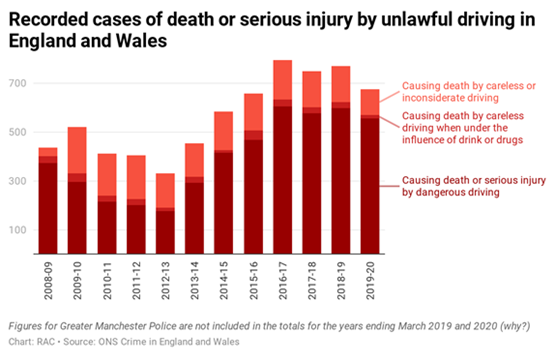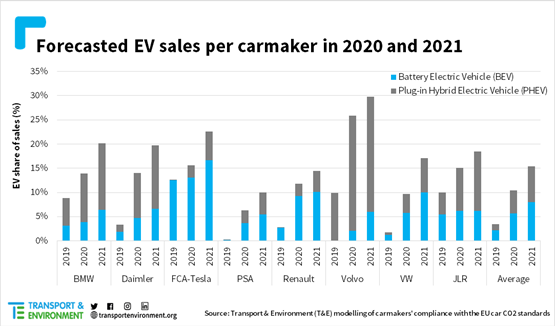Thursday, 22. October 2020
Birmingham has joined Bath in announcing a start date for its charging clean air zone (CAZ) after the schemes were approved by Government.
Birmingham’s CAZ will start from June 1, 2021, while Bath will start charging non-compliant vehicles from March 15, 2021.
Birmingham’s zone will cover an area of the city inside the inner ring road (A4540 Middleway) and once live will mean that the owners of non-compliant vehicles, which account for around 25% of the vehicles on Birmingham’s roads, will need to pay a daily charge to drive into or through the CAZ.
Birmingham was meant to introduce a CAZ last year, along with Leeds, but both were postponed until 2021 due to the coronavirus pandemic.
Cars, taxis and vans will pay £8 per day to drive into the CAZ in Birmingham, while HGVs, coaches and buses will be charged £50 per day.
Birmingham Council says it is providing a range of exemptions and financial incentives worth some £35 million to help residents, city centre workers and businesses prepare for the introduction of the CAZ.
Applications and expressions of interest for all of these schemes are now open with more information available at the website: BrumBreathes.co.uk.
Councillor Waseem Zaffar, cabinet member for transport and environment at Birmingham City Council, said: “The majority of drivers on Birmingham’s roads will not need to pay the daily charge but if you do then you may be eligible for an exemption or one of the financial incentives. So, I would encourage everyone to check the Brum Breathes website today.”
Bath’s CAZ had been due to be switched on in November but was delayed due to the coronavirus pandemic.
Bath & North East Somerset Council says it considered air quality, traffic levels and the impacts of Covid-19 on local businesses and the economy, before agreeing the new start date of March 15, with the Government.
However, it said that the date will be monitored to account for any significant developments during the ongoing coronavirus pandemic.
The council is currently contacting more than 9,000 local businesses to help them establish whether charges will apply to their vehicles, and how to access the support on offer.
The CAZ will operate in the city centre 24 hours a day, seven days a week, 365 days a year.
Charges will apply to pre-euro 6/VI diesel and pre-euro 4 petrol vehicles, except cars and motorbikes.
Non-compliant vans, taxis and minibuses will be charged £9, while non-compliant trucks and lorries, and coaches and buses face a daily charge of £100.
The council has also announced financial support to help fleets upgrade to compliant vehicles. Local businesses including those in neighbouring authorities that have premises and/or regularly drive in the zone, can apply.
For example, it says that eligible van drivers could receive up to £4,500 in grants, plus interest-free finance, to help them upgrade to a similar, compliant vehicle.
Larger grants are available of up to £20,000 for HGVs and £35,000 for buses and coaches.
In light of Covid-19, the council has also amended the scheme so that if eligible businesses fail their initial credit check, they can re-apply once their finances have improved.
In addition, these drivers would be able to apply for exemptions on their non-compliant vehicles for up to two years.
There are also a wide range of exemptions available for hard-to-replace or special vehicles, and to support disadvantaged groups and vital services in the city, it said.
Furthermore, discounts will be available for drivers of larger, higher emission motorhomes and horse-transporters (private heavy goods vehicles) who can pay £9 instead of £100 provided they register with the council. Applications for all local exemptions and discounted vehicles will open in November.
Leader of the council, councillor Dine Romero, said: “In 2017, the government directed us to reduce levels of nitrogen dioxide in the city in the shortest possible time. Technical work showed that a charging zone was the only measure that could achieve compliance in the time frame we were given.
“The council consulted widely on this and agreed to introduce a class C charging CAZ with traffic management at Queen Square, charging all higher emission vehicles, except private cars and motorcycles, to drive in Bath’s city centre.
“However, there is no getting away from the fact that Covid-19 has had a significant impact on many businesses and this will be an additional cost that they have to consider.
“We have worked hard to secure a considerable package of financial and other support to help business owners and I would urge them to get in touch, talk to us and find out how we can help.
“We all want clean air and the zone is a step towards our wider ambitions for Bath and North East Somerset to address air quality and tackle the climate emergency.”
Chris Yarsley, policy manager at Logistics UK, welcomed the clarity which today’s announcement provides on the date for the introduction of the CAZs in Bath and Birmingham, which the business group has been working on with the local authority for some time. This will allow logistics operators time to plan new business practices and speed vehicle replacement timelines where necessary, he said.
“News that support packages will be available for operators to assist with the acquisition of Euro VI standard vehicles is also positive encouragement for a sector which has been impacted by the downturn of the economy caused by the Covid-19 pandemic, and is only now starting to return to pre-pandemic levels of trading.
“Logistics operators remain committed to cleaning up urban air but it is important that other contributory factors to air quality are also considered in the longer term, including improvements to traffic flow patterns, retiming of deliveries and the introduction of alternatively fuelled vehicles, as well as other sources of air pollution, to the benefit of all.” By Graham Hill thanks to Fleet News
Share My Blogs With Others:
These icons link to social bookmarking sites where readers can share and discover new web pages.
























